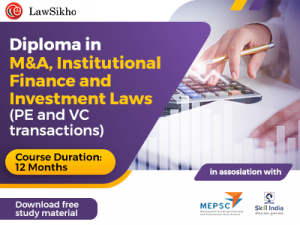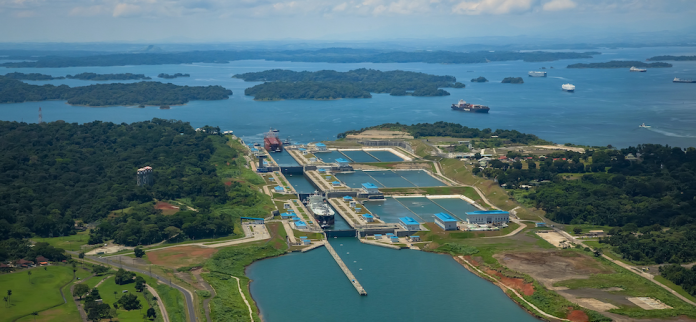This article has been written by Nimish Dhagarra, pursuing the Diploma Programme in M&A, Institutional Finance, and Investment Laws (PE and VC transactions) from LawSikho.
Table of Contents
Introduction
Where there is an investment there is tax. We know that imposition of tax is kind of like imposition of penalty which can only be imposed if the language of the statute strictly says so. Three components of the taxing statute are–
1.subject of the tax;
2. person liable to pay;
3. the rate at which tax is levied.
But when you look all around the world, some economies or should I say some countries offer a mechanism where there is little or no tax liability. A country that offered foreign individuals and businesses little or no tax liability in a politically and economically stable environment is known as a tax haven, also known as “secrecy jurisdiction” or “offshore” which provide any of the following such as-
- Escape from tax;
- Secrecy in various forms;
- Avoidance of financial regulation;
- Avoidance in criminal laws;
- Escape from other rules of society, for example, corporate governance rules, etc.
Along with other countries such as Monaco, Switzerland, Hong Kong, Bahamas, Mauritius, Cayman Islands, and many more, Panama is a Tax haven that has been a hub for investments, safeguarding black money, and creating offshore accounts for many years. As mentioned above these countries invite businesses and individuals to bring their money into their economy while the governments of such countries offer such incentives mentioned above which help them to regulate and improve their economy. These tax havens are labeled as prosperous nations as the world’s money cash inflow flows into these nations which are enjoyed by all the citizens of such countries.
Panama has been at the top of the list of such countries due to being an international hub for trade, investment, safeguarding black money tourism, you name it. Due to the great potential of the Panama Canal, the world’s second-largest free-trade zone in the world, Panama has been a magnet for Foreign Direct Investment for a number of sectors from all around the world and currently receiving the most FDI in Central America according to a report by UNCTAD’s World Investment Report.
Short note on Foreign Indirect Investment
In simple terms, FDI is an investment by an investor in one country to a business or corporation resident in another country with the intention of having a great return on investment along with lasting interest. It is said the key to FDI is the control by the investor in the business operations of the foreign company with the intention to influence and manage such companies’ operations. An investor simply has to make an FDI in the foreign country business meaning they have to expand their own business which can be done through-
1.Buying, acquiring, or exchanging shares with foreign companies.
2. Joint venture with a foreign company
3. Merger and Acquisition
4. Subsidiary in a foreign country
According to World Bank, Foreign Direct Investment means-
“Foreign direct investment are the net inflows of investment to acquire a lasting management interest (10 percent or more of voting stock) in an enterprise operating in an economy other than that of the investor. It is the sum of equity capital, reinvestment of earnings, other long-term capital, and short-term capital as shown in the balance of payments. This series shows net inflows (new investment inflows less disinvestment) in the reporting economy from foreign investors, and is divided by GDP.”
Determinant of FDI in Panama
- Panama’s Environment and The Panama Canal-Canal De Panama, an artificial waterway stretching over 82 km in Panama which connects the Atlantic Ocean and Pacific Oceans. It has been a free trade zone for entities all around the world attracting business from all around the world to do foreign trade. The motive for building the canal was to have maritime shortcuts through the Isthmus of Panama.
Due to the canal, the shipping routes from the Americas to Asia and Australia have been shortened by almost half meaning ships don’t have to navigate through South America. This free trade zone has been the preferred and best route for transporting large amounts of goods from one state to another. Due to the canal, the country’s geographical location, its infrastructure, trade agreement, and the incentives offered to investors from all around the world have led Panama to be one of the fastest-growing economies in the world. It is evident that this country is highly dependent on foreign investment and has created an atmosphere where investors are encouraged to pour money into their economy.
But factors such as corruption, poorly educated workforce, patronage, labor issues, weak judicial capacity and system, income inequalities, political tension, and one of the most important, the Panama market is small relative to other tax haven countries has somewhat discouraged or should I say made investors hesitant to invest money in Panama who have no doubt made the process of investing simple and attractive. Attractive solely due to the factor that Panama Canal plays in the world economy trade.
- Policy, law, and regulation on Foreign Direct Investment
- The United States and Panama have signed a Trade Promotion Agreement that entered into force in October of 2012. The U.S.-Panama TPA has significantly liberalized trade in goods and services, including financial services.
The TPA also includes sections on customs administration and trade facilitation, sanitary and phytosanitary measures, technical barriers to trade, government procurement, investment, telecommunications, electronic commerce, intellectual property rights, and labor and environmental protection.
- ProPanama, an initiative taken by the Panama government for implementing the necessary action for the attraction of investment to the country and the promotion of exports from Panamanian products abroad was introduced in the year 2019. This agency has identified the key sectors of investment in Panama which includes-
- Renewable energy;
- Development of infrastructure;
- Light Manufacturing;
- Maritime Services;
- Headquarters and Services;
- Multi-Modal Logistics, and
- Tourism.
The strategy that the country has adopted is for the promotion of investment include;
- To generate confidence in investors by promoting Panama as a destination for their capital.
- To contribute to providing an adequate business climate, with political stability and legal security.
- To contribute to the development of a rescue plan and promotion of Panama’s image abroad.
- Assist in the implementation of the National Investment Strategy.
By introducing this service the country has created a mechanism to monitor large foreign investments by helping investors and providing them useful information, support, expedited, etc from smooth transactions of investment in the country which also encourages foreign investors to invest in the country. This legal framework has created an internal regime where the authorities will have autonomy in performing their function in accordance with the constitution of Panama and the investment laws. This tool has provided a boost to the Panama economy as they have created a policy that is helping them achieve the desired social and economic goals. This National strategy is helping Panama target their decade-old investment problem in a new innovative way by using new technologies, innovative corporate governance practices to attract investment. They have created a competitive market foreign investment which is resulting in helping them achieve sustainable growth.
It is evident that Panama is a country that is in constant need to have FDI inflows in its economy to function as a nation and maintain its prosperity. Having said that, the country through its laws provides super incentives to investors and international companies all around the world to open headquarters in Panama, buy real estate, and establish business operations. This range of incentives was introduced by the laws passed by their cabinet which offers incentives such as total exemption of taxes on exports activities, less uniform import duty on raw materials, a tax credit to companies and foreign investors, tourism sector being exempted from income tax, no capital taxes, no or less charge of depreciation on assets, etc.
Two major key changes that were brought were; in 2003, with a partnership with the World’s Bank Finance Corporation, the Panama government established a free economic zone with tax incentives and high tech logistic and telecommunication facilities which are now known as Panama Pacifico. Government offices established in these zones will handle all the processes related to business operation set up, registration, work permit, visa, real estate, planning out tax incentives, call centers, etc.
Another major kee change was Panama amended its Petroleum Free Trade legislation in which they extended the permit period, distributor in the domestic market are allowed to trade petroleum by produced more freely, the Crude Oil and By-Products Office can now determine benchmark price for Gas and Related Products on a weekly basis, as opposed to the previous biweekly basis, the executive branch can now, through the Crude Oil and By-Products Office, import all crude oil by-products to supply the local market in cases of national emergency, provided that the strategic reserve of the country is affected, or at risk and many more.
In 2007, Panama inaugurated a headquarters company regime known as SEM, which is a mechanism that offers tax breaks to multinational corporations to set up a business with various types of services, and these companies known as SEM companies will enjoy some benefits over other companies for example tax benefits and tax exemption from foreign-sourced profits from such service.
Conclusion
Panama has become an international hub or we can say world trade center where all the players around the world want a piece of it. It is clearly visible that this tax haven country has made the process of investing a simple and attractive process and no doubt with its implementation of new legal regimes and frameworks, there has been accountability inaction of the Panama government where they have eyes on every big foreign investment made in their country but that being said it is still a place where players have too much freedom to operate which has led to a lot of under the radar transaction are taken place leading to malpractice, laundering of black money, money being used for exploiting the locals/domestic workers, white-collar crime, harboring of criminal fugitives etc and with the establishment of so much business operation, the environment of Panama has taken a huge toll on its quality has area near Panama canal has been subject to deforestation, air, and water pollution, endangerment of species, land degradation, etc.
Well, one can say it works, weighing out the pros and cons of the foreign investment in the country, but the ground reality is different from what we perceive from outside as from outside we see a place to make huge profits but a place where money plays and can buy you anything from goods and service to immunity or protection from international authorities, the country is in need of a more robust system to make the players in the market creator a sense of accountability and responsibility towards the country and respect for basic norms of international practices.
References
- export.gov, Panama- Openness to and Restriction on Foreign Investment, Published-14/11/2016,https://www.export.gov/apex/article2?id=Panama-openness-to-foreign-investment.
- http://propanama.mire.gob.pa/about-propanama.
- http://propanama.mire.gob.pa/advantages-of-panama/how-to-invest-in-panama.
- https://www.lowtax.net/information/panama/panama-foreign-investment-regime.html.
- https://sponsored.bloomberg.com/immersive/the-republic-of-panama/a-world-trade-center-at-the-center-of-the-world.
Students of Lawsikho courses regularly produce writing assignments and work on practical exercises as a part of their coursework and develop themselves in real-life practical skills.
LawSikho has created a telegram group for exchanging legal knowledge, referrals, and various opportunities. You can click on this link and join:
 Serato DJ Crack 2025Serato DJ PRO Crack
Serato DJ Crack 2025Serato DJ PRO Crack










 Allow notifications
Allow notifications


